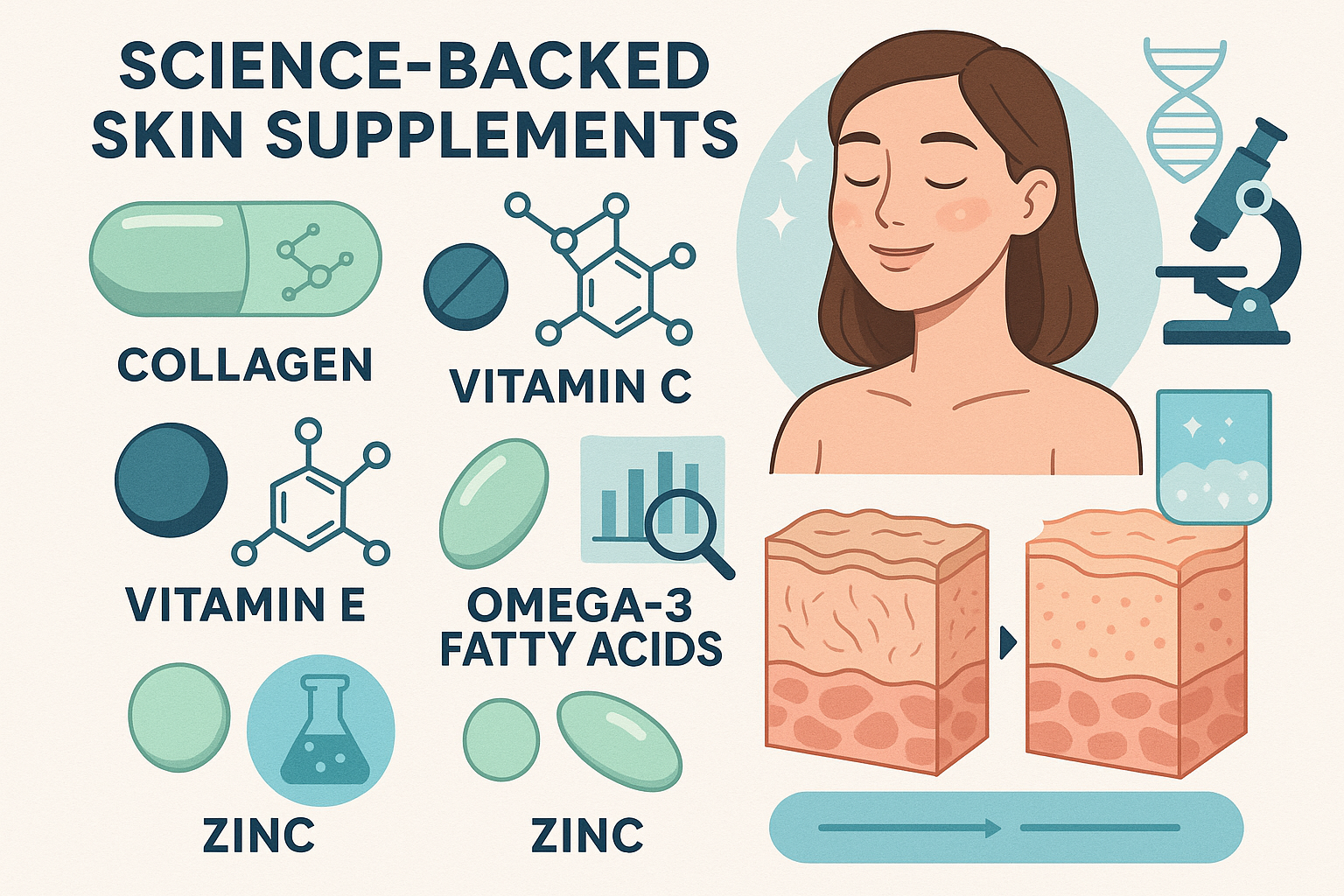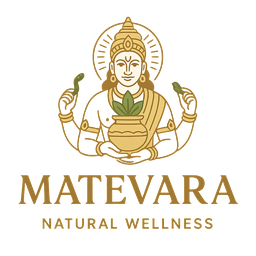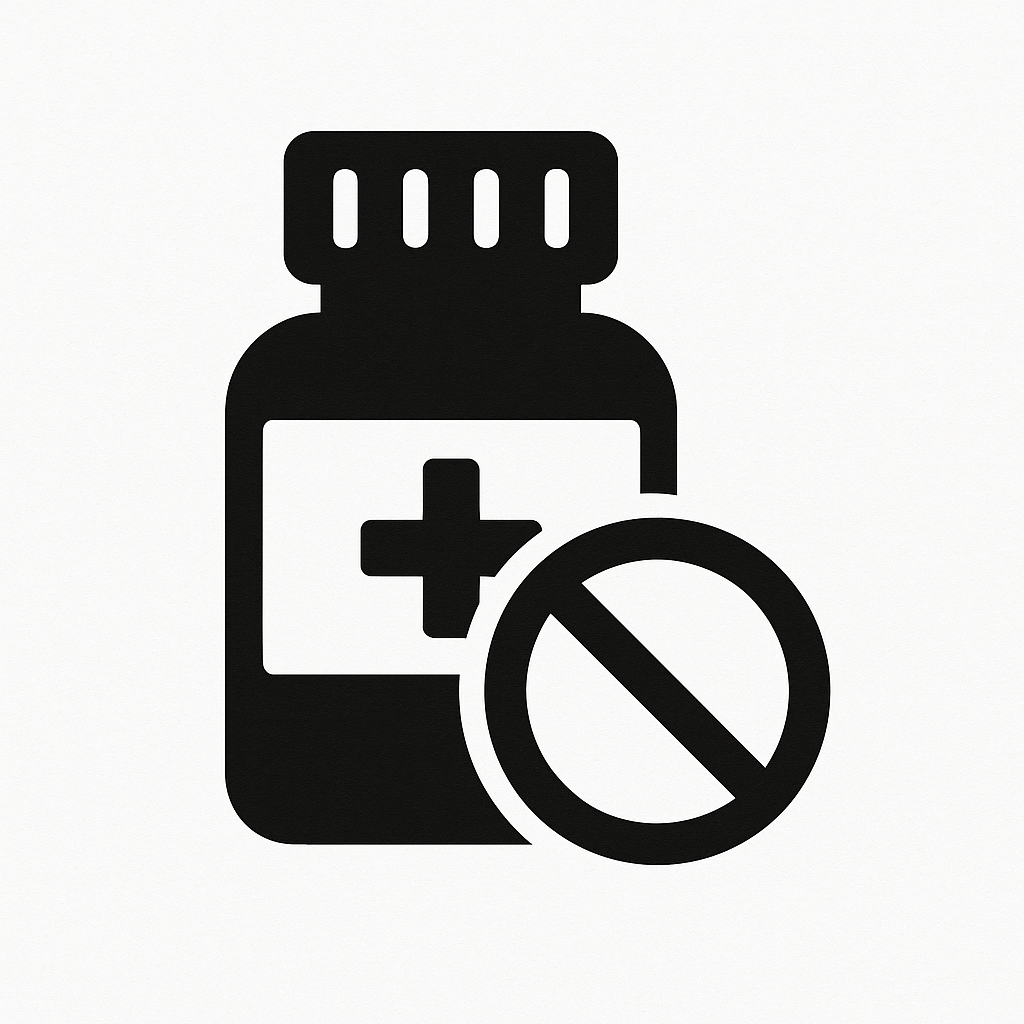
Which Skin Health Supplements Work? Understanding The Science Behind
The quest for healthy, radiant skin has led millions to explore the world of supplements. Walk into any health store or scroll through wellness websites, and you'll find countless products promising to transform your complexion from within. But amid the marketing hype and glossy before-and-after photos, a crucial question remains: which skin health supplements actually work?
The answer isn't as straightforward as many brands would have you believe. While some supplements have robust scientific backing, others rely more on hope than evidence. Understanding the science behind skin supplements can help you make informed decisions about what's worth adding to your daily routine and what might just be expensive wishful thinking.
The Foundation: How Skin Health Supplements Work
Before diving into specific supplements, it's essential to understand how these products theoretically benefit your skin. Your skin is the body's largest organ, and like all organs, it requires specific nutrients to function optimally. These nutrients support cellular repair, collagen production, moisture retention, and protection against oxidative stress.
Skin supplements work by delivering concentrated doses of these nutrients directly to your bloodstream, where they're distributed throughout your body, including to skin cells. The premise is simple: provide your body with the building blocks it needs, and your skin will have better tools to repair, regenerate, and protect itself.
However, the effectiveness of any supplement depends on several factors: the quality and bioavailability of the ingredients, your body's ability to absorb them, your existing nutrient status, and whether your skin concerns are actually related to nutritional deficiencies.
Collagen: The Most Popular Skin Supplement
Collagen has become synonymous with skin health supplements, and for good reason. As the most abundant protein in your body, collagen provides structure and elasticity to your skin. After age 25, your body's natural collagen production decreases by approximately 1-1.5% annually, leading to the visible signs of aging we all recognize: fine lines, wrinkles, and loss of firmness.
The Science: Multiple clinical studies have demonstrated that oral collagen supplementation can improve skin elasticity, hydration, and dermal collagen density. A 2019 review published in the Journal of Drugs in Dermatology analyzed 11 studies and found that participants taking collagen peptides showed increased skin elasticity and improved skin hydration compared to placebo groups.
The key lies in collagen peptides—also called hydrolyzed collagen—which are broken down into smaller molecules that your body can absorb more easily. Once absorbed, these peptides trigger your body's own collagen production and can also provide amino acids that serve as building blocks for new collagen synthesis.
Dosage and Type: Most studies showing positive results used doses between 2.5-10 grams daily, taken consistently for at least 8-12 weeks. Types I and III collagen are most relevant for skin health, though most marine and bovine collagen supplements contain a blend of types.
Hyaluronic Acid: Hydration From Within
Hyaluronic acid (HA) is a molecule naturally present in your skin that can hold up to 1,000 times its weight in water. This makes it incredibly effective at maintaining skin hydration and plumpness. As we age, our skin's HA levels decline, contributing to dryness and the appearance of fine lines.
The Science: Research published in the Journal of Clinical Biochemistry and Nutrition found that oral HA supplementation significantly improved skin moisture and reduced the appearance of wrinkles after 12 weeks. The study participants took 120-240mg daily of a specific form of HA with low molecular weight, which is more easily absorbed.
Unlike topical HA, which primarily affects the skin's surface, oral HA works systemically, potentially benefiting deeper skin layers. Studies suggest it increases moisture content throughout the dermis, not just the epidermis.
Important Considerations: The molecular weight of HA matters significantly. Low molecular weight HA (under 50 kDa) is more bioavailable and shows better results in studies. Most effective supplements use doses between 120-240mg daily.
Vitamin C: The Antioxidant Powerhouse
Vitamin C plays a crucial role in collagen synthesis and serves as a potent antioxidant that protects skin from free radical damage. It's also involved in wound healing and can help brighten skin tone by interfering with melanin production.
The Science: Vitamin C is essential for the hydroxylation of proline and lysine, amino acids that stabilize collagen structure. Without adequate vitamin C, your body cannot produce stable collagen, regardless of how much collagen supplement you take. Research shows that vitamin C can also protect against UV-induced photodamage and reduce the appearance of wrinkles.
A study in the American Journal of Clinical Nutrition found that higher dietary vitamin C intake was associated with better skin appearance and fewer wrinkles in middle-aged women, independent of other factors.
Practical Application: While you can obtain vitamin C from diet, supplementation ensures consistent levels. The recommended dose for skin health ranges from 500-1000mg daily, though some research suggests that doses above 100mg may offer diminishing returns for collagen synthesis specifically. Look for buffered forms like calcium ascorbate or lipid-encapsulated vitamin C for better absorption and reduced stomach upset.
Omega-3 Fatty Acids: Anti-Inflammatory Protection
Omega-3 fatty acids, particularly EPA and DHA found in fish oil, offer powerful anti-inflammatory benefits that extend to skin health. These essential fatty acids help maintain the skin's lipid barrier, regulate oil production, and can reduce inflammatory skin conditions.
The Science: Research published in the Journal of Lipid Research demonstrates that omega-3 supplementation can reduce UV-induced inflammation and protect against photoaging. A study in the Journal of the American Academy of Dermatology found that omega-3 supplementation improved symptoms of acne by reducing inflammation and regulating sebum production.
Omega-3s work by competing with omega-6 fatty acids in inflammatory pathways, shifting the balance toward anti-inflammatory signaling molecules. This can benefit various skin conditions, including acne, psoriasis, and eczema.
Dosage Recommendations: Effective doses in studies typically range from 1,000-3,000mg of combined EPA and DHA daily. The ratio matters—EPA tends to have stronger anti-inflammatory effects, while DHA supports skin barrier function. Look for supplements with a higher EPA content if inflammation is your primary concern.
Vitamin E: Complementary Antioxidant
Vitamin E works synergistically with vitamin C to provide antioxidant protection for your skin. While it's less directly involved in collagen production, its protective effects help preserve the collagen and elastin you have.
The Science: Studies show that vitamin E accumulates in skin cell membranes, where it protects lipids from oxidative damage. Research in Free Radical Biology and Medicine found that combined supplementation of vitamins C and E provided more protection against UV damage than either alone, demonstrating their synergistic relationship.
Application: Most people obtain adequate vitamin E from diet, but supplementation of 400-800 IU daily has been used in studies showing skin benefits. Mixed tocopherols (containing alpha, beta, gamma, and delta forms) may be more effective than alpha-tocopherol alone.
Zinc: The Healing Mineral
Zinc plays a critical role in wound healing, cell proliferation, and has anti-inflammatory properties that benefit acne-prone and damaged skin. It's also involved in maintaining the structural integrity of skin proteins.
The Science: Clinical trials have shown that zinc supplementation can reduce acne severity and improve wound healing times. A meta-analysis in Dermatologic Therapy found that oral zinc was effective in treating acne, particularly inflammatory acne.
Zinc also helps regulate sebum production and has antimicrobial properties that can reduce acne-causing bacteria. However, balance is key—too much zinc can interfere with copper absorption and cause other issues.
Recommended Intake: Effective doses for skin health range from 15-30mg daily of elemental zinc. Zinc picolinate and zinc gluconate are well-absorbed forms. Don't exceed 40mg daily without medical supervision.
Biotin: Beyond Hair and Nails
While biotin is more famous for hair and nail health, it also plays a role in maintaining healthy skin. This B-vitamin is involved in fatty acid synthesis, which supports skin barrier function.
The Science: The evidence for biotin improving skin in people without deficiency is limited. However, biotin deficiency can cause dermatitis and skin issues, so ensuring adequate intake is important. Most people get sufficient biotin from diet, but supplementation of 30-100mcg daily is generally considered safe.
Reality Check: Despite its popularity, biotin isn't a miracle supplement for most people with adequate nutritional status. It's most beneficial for those with actual deficiency or specific metabolic conditions affecting biotin utilization.
Probiotics: The Gut-Skin Connection
The emerging science of the gut-skin axis suggests that gut health significantly influences skin condition. Probiotics can modulate immune function, reduce systemic inflammation, and even affect how your body responds to stress—all factors that impact skin health.
The Science: Research published in Dermatologic Therapy found that certain probiotic strains improved skin hydration, reduced skin sensitivity, and helped manage inflammatory skin conditions. The mechanism involves reducing intestinal permeability, modulating immune responses, and decreasing inflammatory markers that affect skin.
Specific strains showing promise include Lactobacillus and Bifidobacterium species. A study in the European Journal of Clinical Nutrition found that women taking Lactobacillus plantarum showed improved skin hydration and reduced skin roughness after 12 weeks.
Practical Considerations: Probiotic effects are strain-specific, so research the specific strains in any supplement. CFU counts of 1-10 billion are typically used in studies, though more isn't always better. Consistency matters more than high doses.
Astaxanthin: The Emerging Antioxidant
Astaxanthin is a carotenoid with potent antioxidant properties, estimated to be 6,000 times stronger than vitamin C in test tube studies. It accumulates in skin tissue and provides protection against UV damage and oxidative stress.
The Science: A study in the Journal of Clinical Biochemistry and Nutrition found that astaxanthin supplementation improved skin elasticity, reduced wrinkle depth, and decreased moisture loss in participants after 6-12 weeks. The antioxidant properties help protect collagen and elastin from degradation.
Usage: Effective doses in studies range from 4-12mg daily. Astaxanthin is fat-soluble, so take it with a meal containing fats for better absorption. Natural sources from algae are preferred over synthetic versions.
What Doesn't Work: Separating Myth From Science
Not every popular supplement lives up to its marketing claims. Here are some commonly touted ingredients with questionable evidence:
Keratin supplements: While keratin is important for skin, hair, and nails, there's limited evidence that oral keratin supplements provide significant benefits beyond what you'd get from general protein intake.
Ceramides: Though important for skin barrier function, the evidence for oral ceramide supplements is mixed and limited. Topical ceramides have stronger support.
Glutathione: While this antioxidant has theoretical benefits, studies on oral glutathione for skin lightening show inconsistent results, and bioavailability remains questionable.
Creating an Effective Supplement Strategy
Understanding which supplements work is only part of the equation. Here's how to create an effective approach:
Start with the foundation: Collagen peptides, vitamin C, and omega-3s form a scientifically-backed foundation for skin health supplementation. These three have the strongest evidence base and complementary mechanisms.
Be patient: Skin cell turnover takes 28-40 days, and deeper changes to collagen structure take even longer. Most studies showing benefits used supplementation for at least 8-12 weeks. Don't expect overnight miracles.
Quality matters: Look for supplements with third-party testing, transparent labeling, and clinically-studied forms of ingredients. The cheapest option is rarely the most effective.
Consider your specific needs: If you have inflammatory skin conditions, prioritize omega-3s and probiotics. For aging concerns, focus on collagen, hyaluronic acid, and antioxidants. For dull or uneven skin, vitamin C and antioxidants should be priorities.
Don't neglect the basics: No supplement can compensate for poor sleep, high stress, inadequate sun protection, or a nutrient-poor diet. Supplements work best as part of a holistic approach to skin health.
The Role of Diet vs. Supplements
While supplements can fill nutritional gaps, they shouldn't replace a healthy diet. Whole foods provide nutrients in combinations that enhance absorption and offer additional beneficial compounds that supplements don't contain.
Foods rich in vitamin C (citrus fruits, berries, bell peppers), omega-3s (fatty fish, walnuts, flaxseeds), antioxidants (colorful fruits and vegetables), and amino acids (lean proteins, legumes) should form the foundation of your skin health strategy.
Supplements are most beneficial when:
- You have diagnosed deficiencies
- Your diet lacks certain nutrient-rich foods
- You're addressing specific skin concerns that respond to particular nutrients
- You're seeking higher doses than diet alone can provide
Potential Risks and Interactions
While generally safe, skin supplements can have side effects and interactions:
Collagen: May cause digestive discomfort in some people. Start with lower doses and increase gradually.
Vitamin C: High doses can cause stomach upset and diarrhea. Stay below 2,000mg daily unless medically supervised.
Omega-3s: Can interact with blood-thinning medications and may increase bleeding risk at very high doses.
Zinc: Excessive intake can cause nausea, interfere with copper absorption, and impair immune function. Never exceed recommended doses.
Biotin: High doses can interfere with certain lab tests, including cardiac troponin tests. Inform your doctor if taking biotin supplements.
Always consult with a healthcare provider before starting new supplements, especially if you're taking medications, have health conditions, or are pregnant or nursing.
The Future of Skin Health Supplements
Research continues to evolve, with promising areas including:
- Personalized supplementation: Based on genetic testing and microbiome analysis
- Novel peptides: Beyond collagen, including specific bioactive peptides targeting different skin concerns
- Advanced delivery systems: Improving bioavailability and targeted delivery to skin tissue
- Combination formulas: Synergistic blends based on mechanistic understanding
As science advances, we'll gain better understanding of individual variation in supplement response and more precise recommendations for different skin types and concerns.
Making Informed Decisions
The skin supplement market is crowded with products making bold claims, but now you have the scientific foundation to separate marketing from reality. The supplements with the strongest evidence—collagen peptides, vitamin C, omega-3 fatty acids, and hyaluronic acid—deserve consideration as part of a comprehensive skin health strategy.
Remember that supplements work best when combined with:
- Adequate sun protection
- A nutrient-rich diet
- Proper hydration
- Quality sleep
- Stress management
- Appropriate topical skincare
Your skin is a reflection of your overall health, and no single supplement is a magic bullet. The most effective approach combines evidence-based supplementation with healthy lifestyle habits and realistic expectations.
Take Action for Healthier Skin
Ready to explore science-backed skin health supplements? Visit Matevara's Skin Care Collection to discover quality products formulated with clinically-studied ingredients. Their range includes supplements designed to support your skin health journey from within, backed by research and crafted with care.
Whether you're addressing signs of aging, seeking to improve hydration, or supporting overall skin resilience, the right supplements can make a meaningful difference when chosen wisely and used consistently. Your skin invests approximately 28 days to show you the results of what you feed it—make those nutrients count.
Disclaimer: This article is intended for informational and educational purposes only and should not be construed as medical advice. The information provided is based on scientific research and general knowledge about nutritional supplements, but individual results may vary significantly. Before starting any new supplement regimen, you should consult with a qualified healthcare provider, especially if you have pre-existing medical conditions, are taking medications, are pregnant or nursing, or have known allergies. Supplements can interact with medications and may not be appropriate for everyone. The statements regarding supplements have not been evaluated by the Food and Drug Administration, and these products are not intended to diagnose, treat, cure, or prevent any disease. While the supplements discussed have scientific support, outcomes depend on individual factors including genetics, overall health, diet, lifestyle, and consistency of use. Always purchase supplements from reputable sources and follow recommended dosages unless otherwise directed by your healthcare provider.
Share








